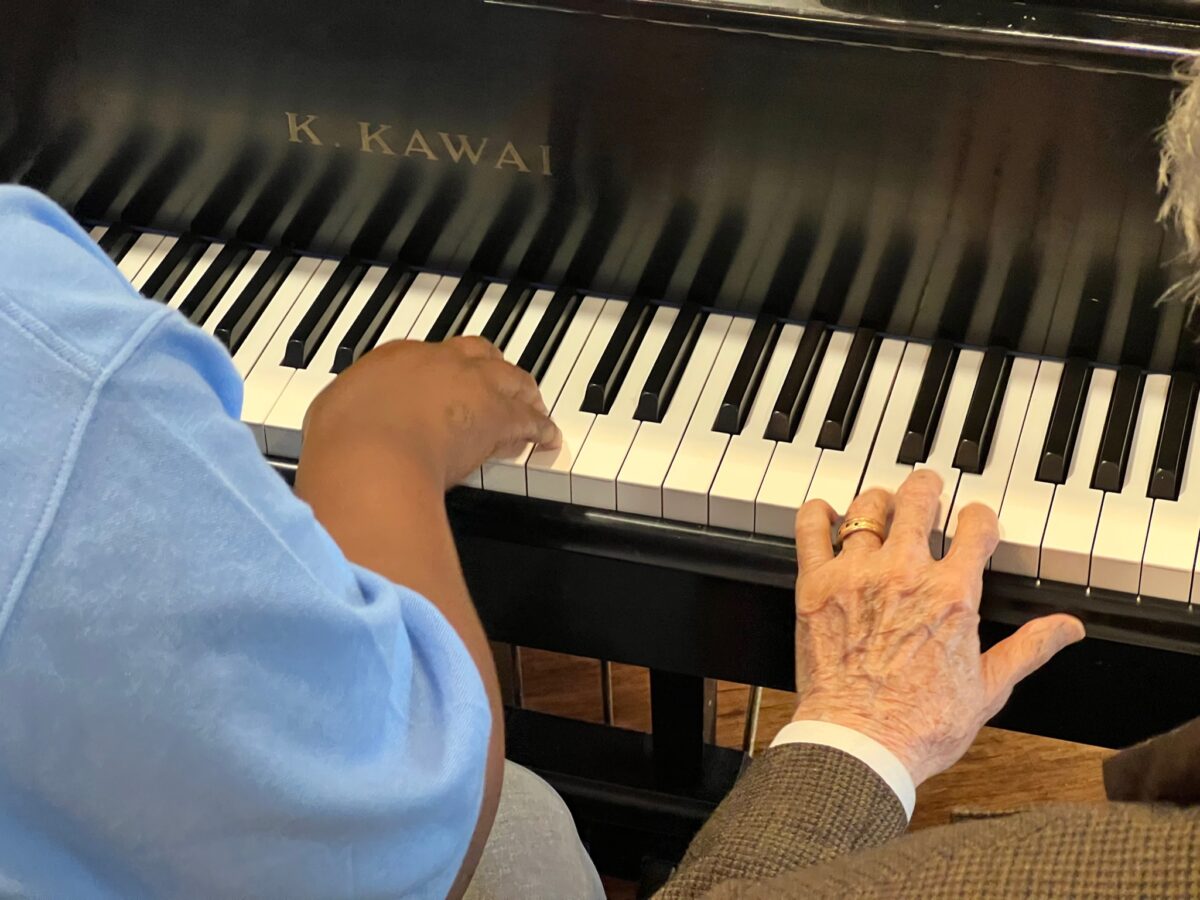What is Music Therapy?

Music has the unique ability to transcend barriers, evoke memories, and foster connection. As a clinical and evidence-based field of practice, music therapy leverages this power to improve quality of life for individuals in assisted living, memory care, hospice, and bereavement settings. Whether you’re a senior living facility administrator, a hospice service provider, or a family caregiver, understanding how music therapy works can help you make informed decisions about enhancing care.
What is Music Therapy?
Music therapy is a structured therapeutic approach facilitated by credentialed professionals. It uses music to address specific health and wellness goals, such as improving emotional well-being, enhancing memory recall, reducing pain, or fostering social interaction.
Sessions are carefully tailored to meet individual needs, creating an adaptable and impactful form of care. For seniors, especially those experiencing cognitive decline or nearing the end of life, music therapy offers a meaningful and dignified way to engage with the world around them.
How Music Therapy Works
Music therapy goes far beyond simply listening to songs. It involves carefully planned interventions designed to achieve measurable outcomes. Here’s what a typical approach might involve:
Personalized Assessment: Therapists evaluate individual preferences, histories, and needs to select music that resonates personally and culturally.
Active or Passive Engagement: Depending on the client’s abilities, sessions may involve singing, playing instruments, moving to music, or listening. Each activity is chosen to meet therapeutic goals.
Physiological and Emotional Support: Music’s rhythms and harmonies can help regulate physical responses, reduce stress, and alleviate pain. It also provides a safe outlet for emotional expression.
Cognitive Stimulation: Familiar songs and melodies often stimulate memory and communication, making it particularly effective for individuals with Alzheimer’s or dementia.
Collaborative Care: Music therapists often work closely with healthcare teams and family members to ensure the therapy aligns with broader care plans.
Benefits for Seniors and Their Care Teams
For Seniors in Assisted Living and Memory Care:
Enhances mood and reduces agitation or anxiety.
Improves cognitive function, including memory and attention.
Encourages physical movement, supporting motor skills and overall health.
For Those in Hospice:
Provides relief from pain and discomfort.
Creates opportunities for legacy projects, such as recording songs or sharing memories.
Offers a comforting presence during end-of-life care.
For Family Members and Care Teams:
Builds meaningful connections through shared musical experiences.
Facilitates communication when verbal expression is challenging.
Provides emotional support and a sense of closure during bereavement.
Why Consider Music Therapy?
Music therapy is a valuable tool for enriching care environments and addressing the complex needs of seniors and their families. It is adaptable, evidence-based, and centered on the individual, making it an excellent complement to traditional medical and psychological interventions.
Whether your goal is to enhance the quality of life for residents in your facility or to bring comfort to a loved one, music therapy can provide meaningful and measurable benefits.
For more information about integrating music therapy into your care programs, I invite you to explore the possibilities with a certified music therapist. Together, we can create a supportive and enriched environment for those you serve.

